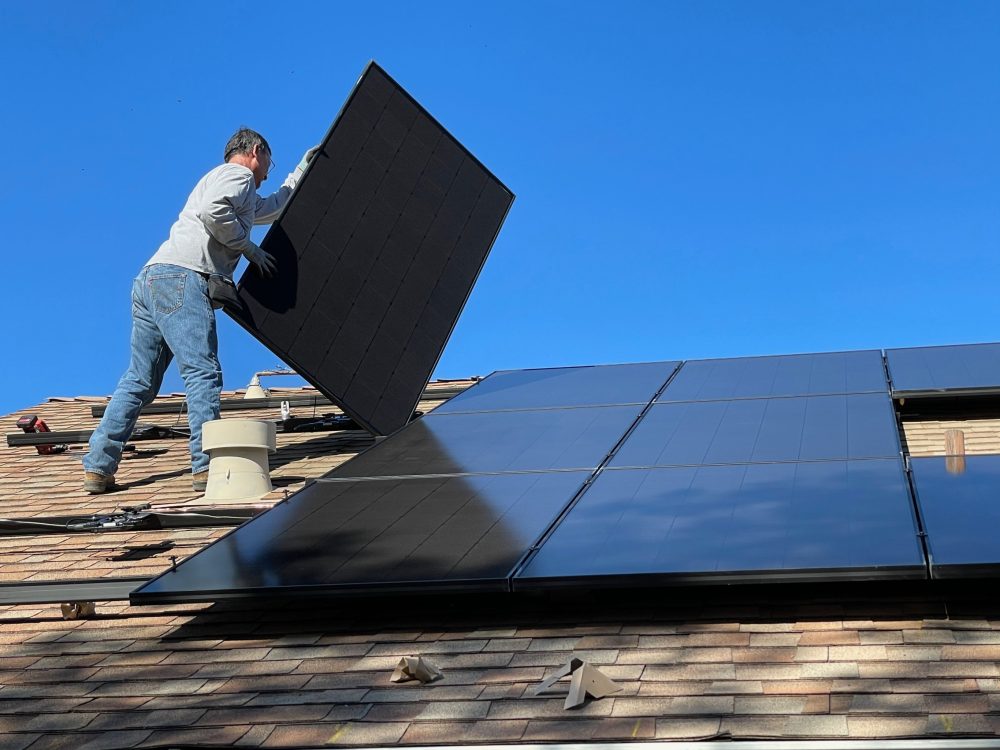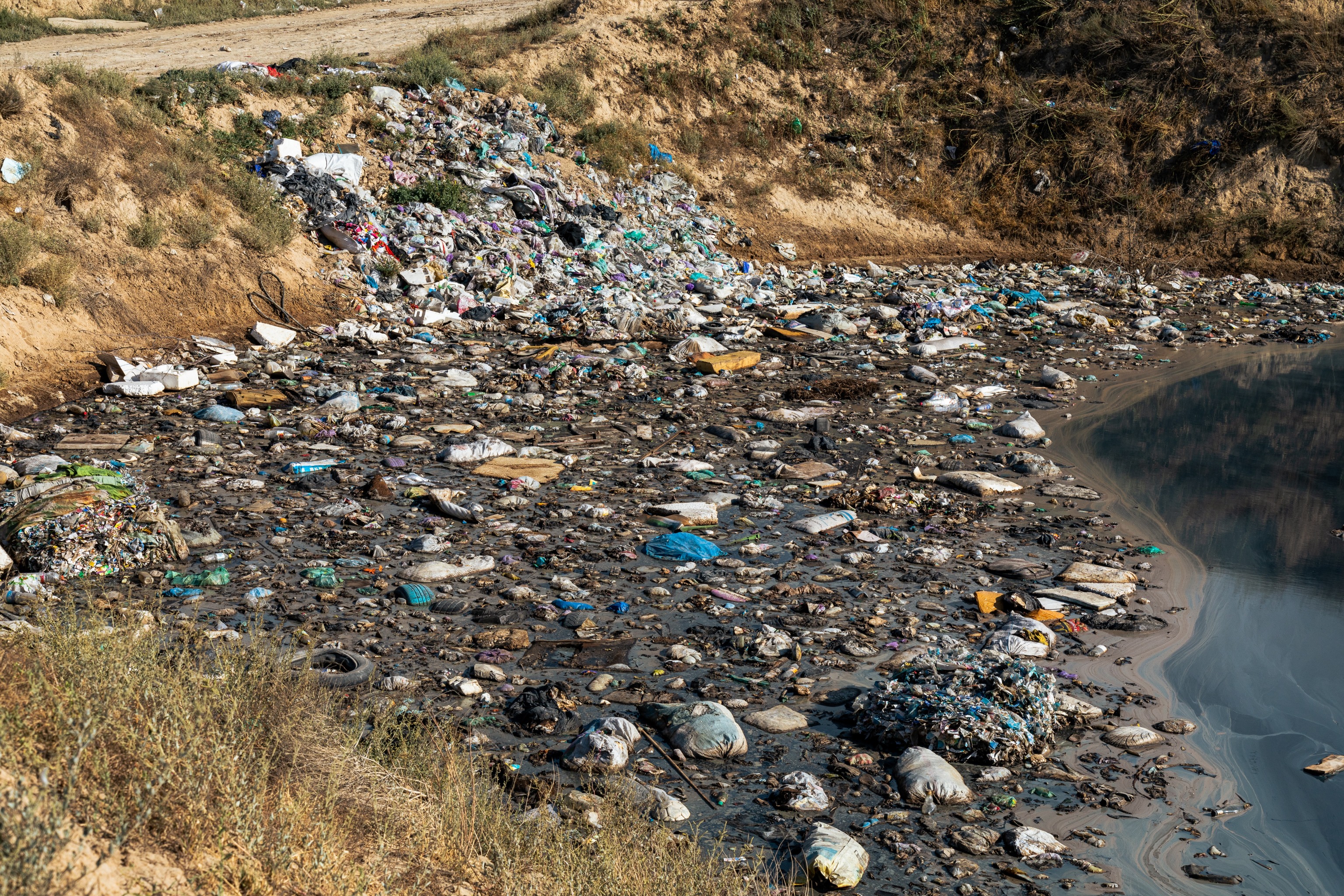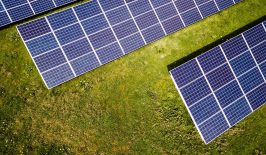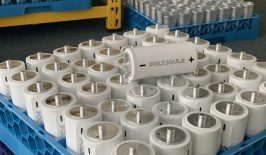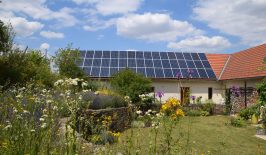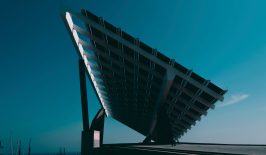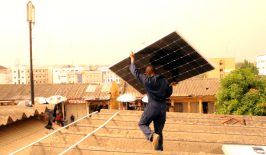Despite being promoted for decades as an essential tool in our fight against climate change, solar panels are far from environmentally safe. Solar panels only have a lifespan of around 25-30 years before they are generally discarded into landfill.
And, as our push for solar power intensifies, so too does their production and therefore waste. SolarPower Europe estimates that solar panel production in Europe grew by 47 percent in 2022. The EU installed a record-breaking 41.4 gigawatts of solar this year, which is roughly enough to provide power to 12.4 million homes. While it’s unequivocally a good thing that solar panels are being installed and more renewable power is being generated, this means that billions of panels will eventually need to be disposed of and replaced. And, this is only set to rise. It’s estimated that eight million metric tonnes of solar panels will have reached the end of their working lives by 2030, a number which is projected to rise to 80 million tonnes by 2050 according to a report by Nature Energy.
Solar’s growing waste problem
That presents an enormous environmental problem. Made from precious metals, glass, and, most of all, crystalline silicon, solar (PV) panels also contain toxic materials such as lead which can pollute the environment when they are dumped into landfill after they reach the end of their lives. Importantly, they also contain valuable materials that could be reused or recycled, however until now, these resources are predominantly wasted.
Energy experts across the board are calling for urgent government action to prevent a looming global environmental disaster. Ute Collier, deputy director of the International Renewable Energy Agency, says;
“It’s going to be a waste mountain by 2050, unless we get recycling chains going now… We’re producing more and more solar panels — which is great — but how are we going to deal with the waste?”
The industry’s current capacity is currently badly underprepared for the vast deluge of solar panel waste that is expected to come. And, as usual, money is a primary issue. While panels contain small amounts of valuable materials such as silver, they contain far more glass, which is low-value, difficult and expensive to transport, meaning that the financial incentive to invest in solar panel recycling has been historically low. To put it into perspective, according to global sources, it costs an estimated 20–30 dollars to recycle one solar panel, whereas sending that same panel to a landfill would cost a mere 1–2 dollars.
Without government funding and political backing, this price disparity could crush industry competitiveness and make it economically unattractive to look into solutions for recycling solar panels. However, other renewable energy industries have had some success in this area. In 2021, the company WindEurope called for a Europe-wide stop on decommissioned wind turbine blades being sent to landfill by the year 2025. And, it worked – Europe’s wind industry now commits to re-using, recycling or recovering 100 percent of decommissioned blades. This commitment became active after several industry-leading and high-profile companies announced their own ambitious plans for blade recycling, as well as a landfill ban that “further accelerated the development of sustainable recycling technologies for composite materials.”
ROSI’s Ramp-PV project is a ray of sunshine in solar recycling
Luckily, a relatively small project is making a lot of heat in the solar recycling industry. French start-up ROSI has developed the Ramp-PV project for recycling raw materials from solar panels at the end of their lifespan, even receiving the EU’s first “Industry of the Future Award” for technological research. After securing 700,000 euros from Horizon, the EU’s research and innovation funding programme, the two-year project has bolstered ROSI’s goal to become a world leader in the reuse of silicon and silver from photovoltaic (PV) waste.
To date, ROSI has been developing the processes and technologies for extracting high-purity materials from PV waste, reintegrating them into key industries, including back into solar. They plan to open the first recycling plant of its kind in Grenoble, France in early 2024 before expanding to Germany, Italy and Spain soon after.
This year, the French plant is expected to recycle around 3,000 tonnes of solar panels, extracting 90 tonnes of silicon, 30 tonnes of copper and 2.5 tonnes of silver. By 2025, the plant’s recycling capacity is projected to rise to 10,000 tonnes. The mass of recovered silicon will be reverted back into new solar panels, with other uses such as semiconductors and batteries also being considered. The recovered copper and silver be recycled across a variety of other industries, generating important income for the EU.
The financial aspects of the project go both ways. “If we had not had the EU support, we would not have reached this point as fast as we did,” says Yohan Parsa, research director at ROSI. “Ramp-PV enabled us to conduct trials on new equipment and accelerated our whole business plan.”
Money and politics are at the heart of sustainable solutions
This mutually beneficial project is a great example of how much good can come from governmental action in sustainability. The EU support has in turn provided several tangible economic and political benefits to the group. Environmental impacts aside, in reducing industrial waste, the project, which launched in November 2020, helps the European economy to become more circular through the reuse of expensive materials.
It also ticks a number of key EU policy boxes in light of rising political tensions. Ramp-PV also has the potential to enhance Europe’s strategic autonomy by extending the domestic availability of valuable raw materials for the solar industry, as well as for electronics and batteries, reducing the group’s reliance on foreign power.
As we have said many times before, governments play an essential role in the achievement of global development goals the world over. Without it, innovative start-ups such as ROSI would simply never be able to enact their ideas, nor have the impetus to pursue and develop the solutions that we so desperately need. So, for once, we have a happy ending. ROSI’s commitment, expertise and support from the European Innovation Council have resulted in a potential CO2 reduction of 400,000 tonnes per year.
